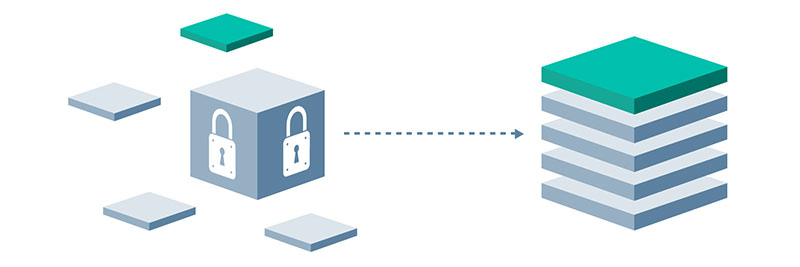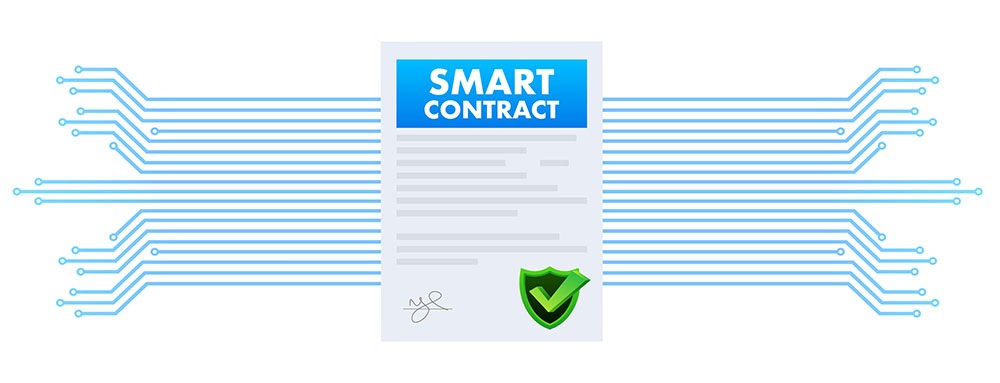Abstract
Today, almost everyone knows the blockchain is. A blockchain is a chain of blocks, including records of transactions and other digital information on a chain of blocks. Most of society believes this technology is only a set for cryptocurrencies. Technology-based applications play more highlighted roles in our lives than recording cryptocurrency transactions in our modern digital world. A blockchain is a distributed ledger (technology) that stores data about non-fungible tokens (NFTs), supply chain information, metaverse, etc.
Blockchain Applications
Although we all know Bitcoin as the most widespread application of a distributed ledger, more applications running based on blockchain technology are wide-ranging. For example, one blockchain technology application manages various financial services such as remittances, digital assets, and online payments. This technology enables the settlement of payments without intermediary parties such as banks, intermediaries, and third parties.
In addition, the next generation of interactive Internet systems, such as smart contracts, credit systems, public services, Internet of Things (IoT), and security services, are other types of blockchain technology applications. Pundits predict a bright perspective for these types of services.
A blockchain without digital currency is a distributed ledger that monitors and tracks the state of a shared database among multiple users. The database includes transaction history and confidential voting data related to elections. After adding the data to the blockchain, it is impossible to update or delete it. Therefore, the applications of blockchain technology are not only related to cryptocurrencies.
Does Blockchain Activity Exclusively Relate to Cryptocurrencies?
Only public blockchains require a digital currency, and private blockchains do not require cryptocurrency to work. Public and private blockchains are the two main groups of blockchain networks. Public blockchains are permissionless; anyone can join and contribute to the blockchain.
On the other hand, private blockchains have no decentralization, and users are added to the network only by invitation. Organizations and institutions manage this group of blockchains.
1) Public Blockchains
Permissionless blockchains pay a reward to their network participants, whom we know as crypto miners like the Bitcoin blockchain. They receive this reward for solving complex mathematical puzzles.

In most cases, this reward is in the form of a native token of the network, and in general, as an incentive for the system, and in a more detailed way, it is a tool to achieve consensus.
Because the Bitcoin network rewards Bitcoin for mining, thousands of computers are currently participating in mining operations.If the developer team cancels the network reward, the incentive to implement the node and participate in the consensus mechanism will decrease and ultimately increase the risk of cryptocurrency theft.
2) Private Blockchains
Hyperledger and Corda are two examples of private blockchains. The Linux Foundation developed the Hyperledger project, a private blockchain, to create a distributed ledger and support confidential business transactions.

Corda is another permission blockchain developed by the R3 software company. The Corda blockchain intends for companies that plan to create interactive distributed networks with private transactions. In this type of blockchain, there is no obligation or requirement to provide incentive rewards to network members. Because centralized companies manage private blockchains.
Is It Possible to Invest in Blockchain without Buying Cryptocurrency?
Although there is no direct way to invest in blockchain technology, interested people can invest in blockchain technologies in other ways.
-
Blockchain-based Startups: Investing in blockchain-based startups is one of the ways to invest without buying cryptocurrency.
-
Companies Offering Blockchain As A Service: The blockchain industry provides many opportunities and creates conditions, such as facilitating corporate processes, accelerating the transaction process, improving security and transparency, and using Blockchain as a Service (BaaS) for users and organizations. Users who intend to invest in blockchain can choose companies that provide Blockchain as a Service, such as IBM or Microsoft, for investment.
-
Companies Developing Blockchain Solutions: Another way to invest in the blockchain industry is to buy shares of parent companies developing blockchain solutions. This method makes it possible to invest in distributed ledger technologies (DLT) without purchasing digital currencies. Therefore, apart from just supporting digital currencies, blockchain has other uses.
-
Supply Chain: The supply chain is one of the scopes affected by blockchain. For example, it is possible to monitor and track the unalterable public history of transactions of a final product from its destination to its origin (i.e., the farm where it was grown). Another example is that it is possible to monitor all phases of the recycling procedure from the beginning until the recycling procedure runs in the recycling centers.
Therefore, this group of companies is also an option for investing in blockchain technology. Suppose anyone wants to invest in blockchain-based startups directly or indirectly. In that case, they should study risks and threats such as technical defects, hard forks, or human error before making decisions. Never risk capital that you cannot afford to lose.
Does the Life of “Smart Contracts” Rely on The Blockchain?
Blockchain technologies in the derivatives of the blockchain industry are necessary for our modern world. Smart contracts enable the execution and automatic execution of agreements without the intervention of a third party, which speeds up the process and reduces the risk of possible mistakes.
Database systems can also have automated components such as execution and storage processes like smart contracts. But these systems cannot enforce immutability because all people with management rights can cancel any transaction or delete the history of transactions. In short, to do this as if nothing had happened. As a result, blockchains are essential for making smart contracts secure and tamper-proof.
Unfortunately, the network of the most popular digital currency, the Bitcoin blockchain, does not support smart contracts. Apart from Blockchain, no other technology can enable the widespread use of smart contracts. Smart contracts require blockchain oracles to call off-chain data sent to the distributed ledger at predetermined times. “Oracles” provide easy access to off-chain resources, too.
Conclusion
The digital world is growing and taking over our daily lives rapidly. Contrary to popular belief, blockchain technology is not exclusive to digital currencies and has many applications. A variety of financial services, credit, online payment systems, interactive internet-based systems, and supply chains are just a handful of applications of blockchain technology.

